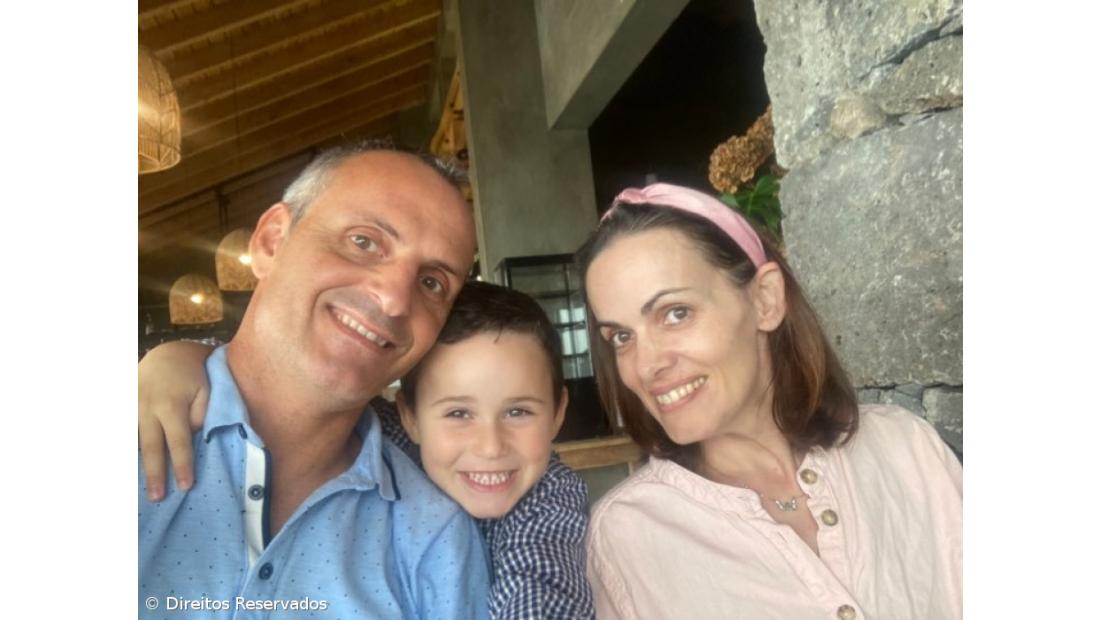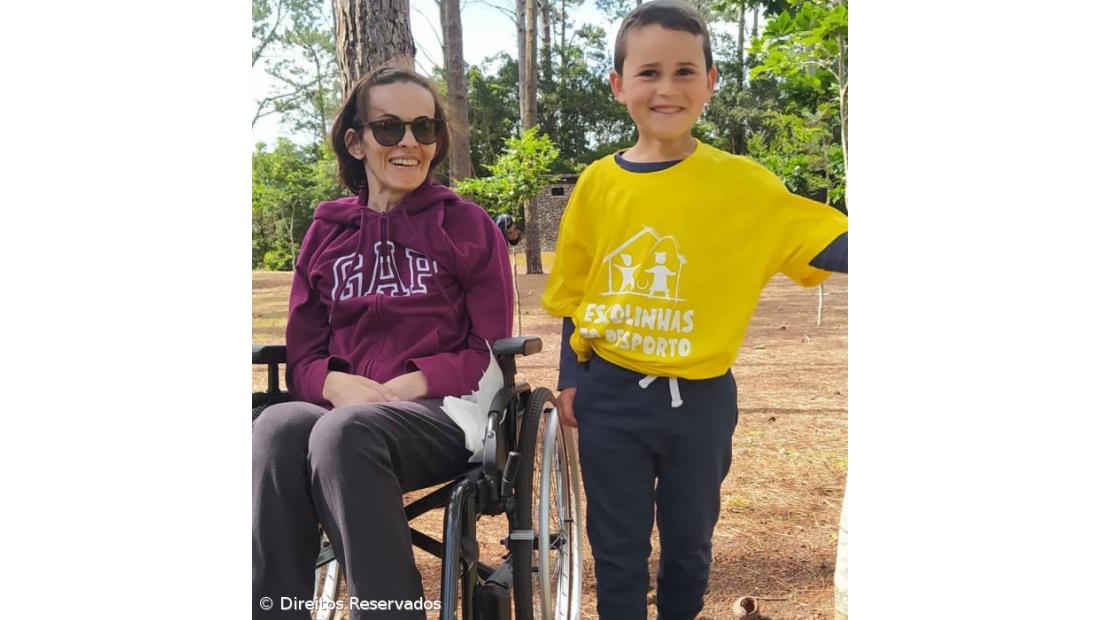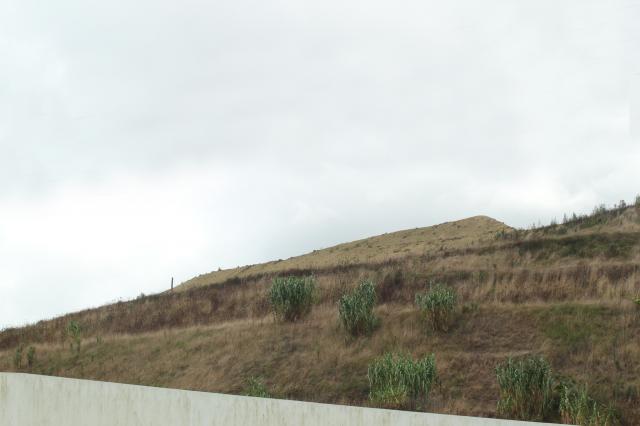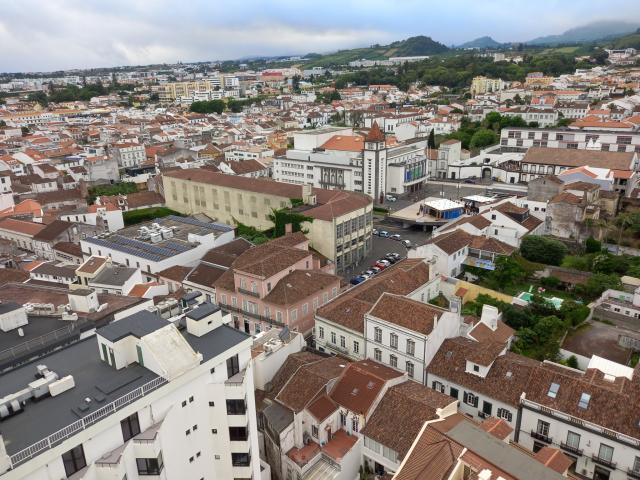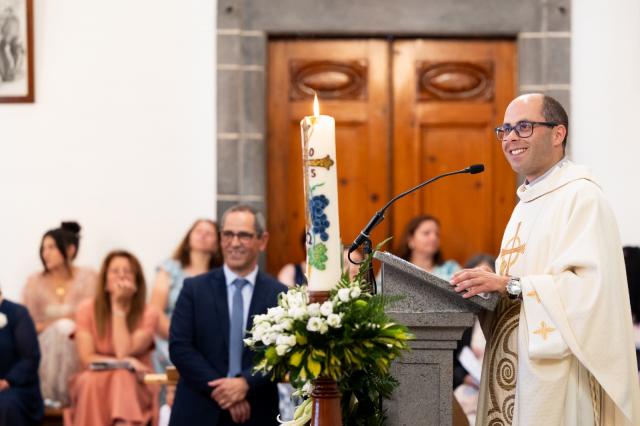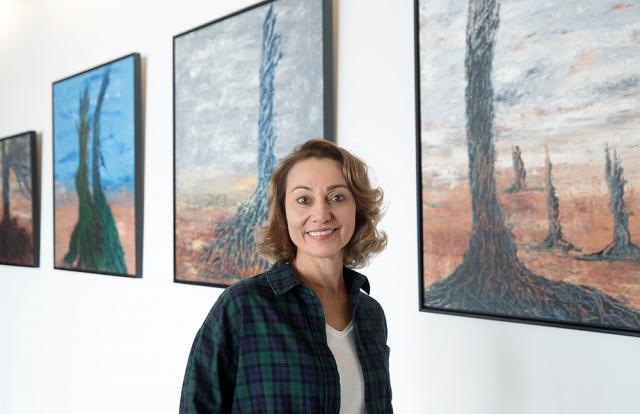Amyotrophic lateral sclerosis (ALS) is a rare degenerative neurological disease. The muscles weaken and the body stops responding. In November 2021, Nívia Pires stopped walking and the following month her speech became almost imperceptible. She communicates through a high-tech system that allows her to write through eye control.
This is not an interview about ALS. Rather, it is a question of giving a voice to those who no longer have it and, if possible, to bring readers to reflect on their own existence.
Who was Nivia before she was diagnosed with ALS?
I never liked talking about myself, so it's hard to pick the right words. Before ALS, I was known for having a strong personality, very stubborn. I have always been a dynamic and creative person and, as a professional, I liked to embrace new projects. I had a refined sense of humor and sometimes I didn't filter what I said. I had a strong "shell" and I didn't like to show my frailties. I've always been more of a listener than a speaker, more prone to give than to receive. I was an active mother, woman, and caretaker, I liked to organize dinners and to have friends around. I've always been concerned with helping and entertaining others.
Who is the Nívia now?
I'm not going to lie, I'm a sadder, angrier, more emotional, easy-crying person. I am also more attentive to the little things that surround me. Sometimes I want to control things, because I started early taking care of myself and others. I never got over the diagnosis. This is not an easy disease to accept, because it limits me on many levels, and being dependent on others for almost everything is not easy for someone who rarely asked for help. I've always been very independent. Many people I thought I was close to have walked away, but I feel grateful for others who have come closer and help me.
Every day I feel grateful for the man who takes care of me and our son, he is our hero. I live one day at a time and try to enjoy every moment with the people I love.
Have you ever heard of this disease before your diagnosis?
We all know the case of Stephen Hawking, but I didn't know the details of the disease and I didn't know there were cases in the Azores. It's one of those rare diseases that we think are "far away" and that don't happen to us. Also, the bucket challenge, despite having become trivial on social networks, was meant to raise awareness to the disease.
What were the first symptoms?
In March 2020, I noticed tingling in my hands, which I devalued, and weakness in my left leg, which made me lose balance in gym classes. Then I noticed, when washing my hair, that the left arm had less strength, did not follow the movements of the right arm at the same pace.
Was it easy to get to the diagnosis?
It was far from easy. It took about eight months from the first symptoms to diagnosis. Maybe it would have been faster if I had gone straight to Lisbon, but it was the beginning of the pandemic, online classes, a small son, and I just let it drag. In May, I decided to go to the emergency room because I started having leg cramps and fasciculations in my arm, but I was sent home to take a muscle relaxant. I then looked for an osteopath, who advised me to be seen by his wife, an internal medicine doctor. I also consulted a private general practitioner, and both managed to get me to a neurologist in Terceira in June. There, I did several tests, including MRI, sleep study and lumbar puncture. The neurologist was extremely unpleasant, ruled out multiple sclerosis and sent me home, to wait for the results. A few weeks later he sent me a report, because I asked the Board of Directors of the Hospital do Santo Espírito for it, since he refused to talk to me on the phone. The report advised taking some heart tests and taking an aspirin a day. Dissatisfied and with the symptoms getting worse, I insisted until I had an appointment with my current neurologist and went back to Terceira to do another MRI. The diagnosis is reached by discarding hypotheses. In September, I went for an electromyography in São Miguel and this exam was decisive. This whole summed up, believe me... On October 21, I got the diagnosis from my neurologist and in November, on his advice, I went to confirm the diagnosis in Lisbon with Professor Mamede de Carvalho, the most respected specialist in the disease in Portugal. I went with some hope, but unfortunately the diagnosis was confirmed.
What's it like to get news like that? Is there revolt, fear?
It's a real shock for which no one is prepared. I couldn't stop crying and thinking about what my life was going to be like, how I was going to take care of my son. And after researching the disease, including life span, and reading some testimonials I was scared, but each case is different. After the shock came the revolt. I did not accept that it would happen to me, because I had always helped others, it wasn't fair, I would never accept it. The question you ask right away is "Why me?" But, as one person told me at the time, "And why not?" And it's true.
How do you feel now?
I'm adapting to the disease, which has evolved too fast. Within a year, I was in a wheelchair. I live one day at a time. It is a daily challenge of resilience, tolerance, and patience for me and those who take care of me. There are days when I feel like a queen, with all the pampering; there are days when I feel like a burden to my partner, who gives up a lot to take care of me; there are still days when I just want to cry; and others when I let myself go and let life flow.
I get emotional whenever I talk about the disease, especially if I meet people I haven't seen in a long time or when the matter involves my son or my partner. However, I also have happy moments and I still enjoy telling my jokes and laughing at ALS.
How have you been these past few months? What has changed in your life?
Since the diagnosis, I have physiotherapy and speech therapy sessions twice a week and occupational therapy once a week. I have regular consultations in neurology, physiatry and psychiatry at Madalena's Health Center and in pulmonology, gastroenterology and stomach-therapy at Horta's Hospital.
My partner is teleworking to take care of me, which includes a lot of time between hygiene, food, respiratory treatments and travels. Everything happens at a slower pace. And we have our son, who also needs attention.
Life has changed a lot, I stopped working and doing everyday tasks. I did a lot of activities with my son that now I can't do. We liked to go out, have dinner the three of us, but there are limits for me now. It is funny that, now, I realize that some highly ranked places on Tripadvisor and other platforms do not have access for people with reduced mobility, much less sanitary facilities where a wheelchair can go in.
You are Julio's mother. How do you explain all these changes to a child, when even for adults it is difficult to accept?
What do you say to a five-year-old when he asks if his mother will walk again? It hurts so much. We don't go into details, but we answer any questions he might ask, although he doesn't ask many. I think he's adjusting, just like us. He realizes that his mother has limitations and that he has to help. He got a lot closer to his father because he knows it's up to him now. He proudly explains to his friends how his mother communicates with her eyes.
In the Azores, are health services prepared to provide support to ALS patients?
In the case of Pico Island, which is the one I know best, I think services are not prepared because, fortunately, ALS cases are rare. I am very lucky with my therapists, who, despite never having dealt with ALS, have always given their best. They even contacted professionals from the Portuguese Association of Amyotrophic Lateral Sclerosis (APELA), of which I became a member, to know how to proceed. They have also handled my process in terms of purchasing the necessary equipment, some of which I am yet to receive after more than a year and a half. But, once again, APELA has an equipment lending system, as is the case with the eye-control communication system, which I am renting, while mine does not arrive.
I usually joke about how they should pay me for the continuous training they are getting from me, because they now have a much more specific know-how for future cases that we hope will not appear.
In our archipelagic peace we tend to think that there are certain situations that do not happen near us. Do you also feel that way about this disease?
Yes, since we do not know any cases close to us, we tend to think these things will not happen to us. And like ALS there are many other rare diseases that come to our attention through the media. We should all take a little time out of the hustle and bustle of our lives and think: “What if it was me?”. Our society lacks in understanding, respect, and tolerance. I have found people who are not sensitive in dealing with my condition, and I realize that many parents do not educate children to respect and accept difference.
You are a warrior. What are your goals?
I wish I could be more in control of my emotions. Then I would be a true warrior. I had some goals, both personally and professionally, that I know I will not achieve. So I will focus on the viable goals, which include accompanying my son to school, as he will now start first grade, supporting my partner or at least making his life easier, spending some quality time with those friends and family I know support me, helping friends who need me because I am a good listener and counselor (I already have some “clients”), fulfilling small dreams and trying to be happy every day, the way that I can.
Other things will come, the body is stuck but the brain is still racing. Above all, what I want is for my son to be very happy and not to be deprived of anything just because his mother is sick. And give back twice to those who have supported me, those angels who appear in the difficult moments of our lives.
Does it bother you how people look at you? What would you like them to say/do when they see you?
It does bother me, but not as much as it did before. People get used to it. But those who haven't seen me in a while and have some appreciation for me and now see me in a wheelchair, or see someone feeding me, or simply my appearance – because I've lost a lot of weight and my body has changed - look at me with a sad look and utter those common expressions – “life is just like that”, “you are such a young girl”, “you have to have a lot of strength” and so on. Others want to hug and kiss me and I usually get emotional. And there are also those who, when they realize I can't speak, start gesturing and talking louder as if I were deaf. Others talk about me and think I'm not listening. Some even asked my partner if I was mentally fit. My intellectual abilities are intact, so there are situations that only make me laugh.
What is your main concern?
My biggest concern is that my son will lose his mother early. I'm also sorry that I am not able to help my parents, who also need support. I'm also worried about getting to a point where it's too hard for them to take care of me. Of course, I am equally concerned about the suffering I may endure.
Did ALS make you look differently at life?
It made me stop (literally) and think that we give much of ourselves to work and others without any recognition, often depriving our closest family of quality time. It made me realize that people worry too much about futile things and about other people's opinions. The most important thing is working to live and not the other way around, to enjoy small moments every day, those that give us peace and joy, and to truly love what life gives us.
What advice would you give to those who read this interview?
May they wake up every day with the same goal: trying to conquer the world. Don't put off until tomorrow what you can do today because tomorrow may be too late. Hug. Kiss. Love. Be grateful. Give back twice as much. Listen to your body. And believe me, health is the greatest treasure you can have!

